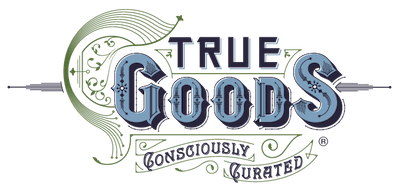“Pinkwashing”
A term used to describe companies that position themselves as leaders in the fight against breast cancer while engaging in practices that may be contributing to rising rates of the disease. This October, I'm sick of finding pink ribbons “supporting breast cancer research” on products that actually contain chemicals linked to breast cancer. L’Oreal, Estee Lauder and Procter & Gamble are famous for this, among others.
So how are you supposed to know which companies are pinkwashing and which ones are actually leaders in the fight against breast cancer? Unfortunately, it’s not easy. Here are a few tips to help you navigate the sea of pink ribbons and to avoid products that contain chemicals linked to breast cancer:
1) Avoid products that list chemicals linked to breast cancer on product labels.
- Parabens ~ preservatives found in numerous personal care and household products
- Triclosan ~ an antibacterial compound used in dish and hand soaps
- Fragrance ~ companies are legally allowed to keep fragrance a secret from consumers, even toxic ones. Phthalates and synthetic musks are two types of common fragrance chemicals that are linked to breast cancer that might be hiding under the umbrella term “fragrance.”
2) Avoid Bisphenol A (BPA)
- Canned foods are commonly lined with BPA, which is linked to breast cancer. Try to eat fresh or frozen foods instead.
- Refuse paper receipts from bank machines and stores if possible. Thermal paper receipt paper can be coated with BPA.
- Avoid plastics as much as possible.
3) Look for three-free nail polish.
- Some nail polishes and hardeners, particularly those sold in salons, still contain the “toxic trio” of toluene, formaldehyde and dibutyl phthalate (DBT). But “three-free” nail products, which don’t contain these chemicals, are readily available.
4) Look for cleaning products that disclose all ingredients.
Many cleaning products contain harsh chemicals which can disrupt hormone levels and increase your risk of cancer ~ and even worse, cleaning product companies aren’t required to list the ingredients in their cleaners!
5) Help solve the pinkwashing problem in the first place!
- Sign the Toxic Time is Up petition from our friends at Breast Cancer Action.
- Take the pledge from our partners at Breast Cancer Fund to go Beyond the Pink.
Want to know more about chemicals linked to breast cancer? Check out this handy resource from the Breast Cancer Fund. Want to learn more about pinkwashing, and how we can call out companies for this disgusting practice? Read Think Before You Pink: Toxic Time is Up from our partners at Breast Cancer Action.
~ Special thanks to Women’s Voices for the Earth for authoring this eye-opening post, originally published on October 8, 2013 at womensvoices.org. Women’s Voices for the Earth is a national organization that works to eliminate toxic chemicals that harm women’s health by changing consumer behaviors, corporate practices and government policies. ~

